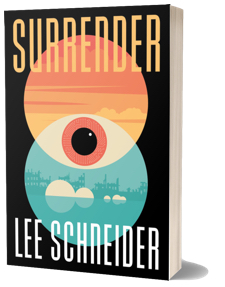Can a Novel Really Change Anything?
By Lee Schneider
They say “you are what you read.” Can your reading habits change the world?

Novels are an ideal delivery system for ideas that shake things up. Upton Sinclair’s The Jungle, published in 1906, took the meatpacking industry to task for its treatment of workers. The novel, and the movement that grew around it, spurred on the public lobby for government regulation of meatpacking, including passage of the Meat Inspection Act and the Pure Food and Drug Act. George Orwell’s 1984, published in 1949, is quoted often today as we grapple with the power of centralized government and the ways we can deploy technology as an instrument of control. Margaret Atwood’s The Handmaid’s Tale, published in 1985, depicts a timely fight many people are in now about reproductive freedoms. Ursula K. Le Guin’s The Left Hand of Darkness, published in 1969, opened up readers to gender fluidity, a topic that has become politicized now.
If we consider political or world-shaking novels like Norman Mailer’s Armies of the Night, (1968) or Philip Roth’s Portnoy’s Complaint, (1969) Toni Morrison’s Beloved (1987), or non-fiction, like Rachel Carson’s Silent Spring, which warned in 1962 of the ecological disaster we face now, our list of books that have the potential to change the world will get long. I don’t have that much room on my night table!
But if we limit our reading list to speculative science fiction only, books like 1984, The Handmaid’s Tale, The Left Hand of Darkness and the like, we will read stories that have a way of telling us more about the present than about the future they depict. I’d call speculative science fiction writing an exaggeration of the present, a way to see the present through the lens of the future.
Pick up a copy of Isaac Asimov’s I, Robot stories, published in 1950, and you might find the prose a little stiff and some ideas dated, but you’ll not be able to ignore that these stories have become the instruction book for how we might respond to robots who are gaining on us in intelligence and even consciousness. Programmers who make chatbots today have to consider the ideas and predicaments and moral problems brought up by Asimov. 1984 is a must-read today to frame what is going on now with the surveillance capitalism imposed on us by Meta and Google. 1984 is a vital read to understand digital censorship of public libraries by public officials and other advocates. The facial recognition technology used by police departments sounds like something Orwell imagined. But it is here today.
It’s useful to look back to the science fiction novels of the past to understand the present, and novels published today will provide the interpretation we need of tomorrow. The Three-Body Problem, with its notion of an alien invasion in the works for 400 years, or The New Wilderness, with its story about how we might find our place in nature from now on, may be the books we turn to for an explanation soon, when we wonder what in the world happened to civilization or how our world has changed so much in so short a time.
Now, you may say to yourself, people may read all these books, but they really change things? Are any minds really changed? They can be, if we are thinking about culture change.
Heather White, author of One Green Thing, has an example for us. She writes that if each one of us does one small thing to address climate change, it will eventually result in a culture change around climate. It seems like a tall order for a thought to do all that, but if held by enough people, it can change the world. After all, if hashtags like #blacklivesmatter or #metoo can focus social action, why not a novel?

About the Author:
Lee Schneider is a novelist and non-fiction writer. His most recent book is Surrender, a speculative science fiction story set in 2050 with a climate change theme. It’s available on Amazon, Apple Books, bookshop.org, and Barnes & Noble. His website is https://futurex.studio.

Reblogged this on Kim's Musings.
LikeLike